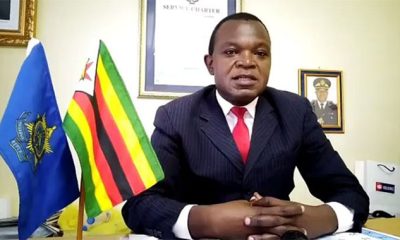HARARE, Zimbabwe (AP) — Out with the Zimbabwe dollar, in with the ZiG.
Zimbabwe on Tuesday started circulating a new currency to replace one that has been battered by depreciation and often outright rejection by the people. The ZiG was introduced electronically in early April, but people are now able to use banknotes and coins.
It’s the southern African country’s latest attempt to halt a long-running currency crisis underlining its persistent economic troubles. The government had previously floated various ideas to replace the Zimbabwe dollar, including introducing gold coins to stem inflation and even trying out a digital currency.
Since it was launched electronically on April 5, the ZiG — short for Zimbabwe Gold and backed by the country’s gold reserves — appears to be heading down the same path of mistrust, with some government departments refusing to accept it.
The ZiG is the sixth currency Zimbabwe has used since the spectacular 2009 collapse of the Zimbabwe dollar amid hyperinflation of 5 billion percent, one of the world’s worst currency crashes to date. That set off a chaotic series of events: first the U.S. dollar was allowed as legal tender, then banned, then unbanned.
A new “bond note” became legal tender, the Zimbabwe dollar was reintroduced before the gold coins and digital currency were tried.
However, nothing brought any currency stability and the U.S. dollar remains the most trusted for ordinary Zimbabweans.
As the shiny new ZiG banknotes hit the streets, the mistrust was evident.
Kudzanayi Mande, a vegetable trader at the crowded Mbare market in the capital of Harare, said she would rather forgo a sale than accept the ZiG. She was confused, the 56-year-old said.
“Already there is an official exchange rate and a depreciated black market rate, so I will wait a bit to see what its real value is,” she said. “The U.S. dollar is still a safer bet.”
The government has allowed some businesses, such as gas stations, to refuse to accept the ZiG in favor of U.S. dollars. Some departments, like the office that issues and renews passports, accept only U.S. dollars.
At the same time, other businesses are being ordered to only use the ZiG, and face punishment if they don’t.
“The government prints the money so it should be the first to accept the currency and everyone else will follow,” said Gift Mugano, an economics professor at South Africa’s Durban University of Technology.
“Otherwise it is behaving like someone who feeds on takeaways but wants others to eat the food they cook,” Mugano said. “It becomes suspicious.”
Many in Zimbabwe still remember when a 100 trillion Zimbabwe dollar banknote was printed in 2009 at the height of the hyperinflation to keep up with spiraling prices.
At one point, a loaf of bread cost more than 500 million Zimbabwe dollars. Prices would change from when customers walked into a grocery store to when they lined up to pay at the cash register. Restaurants stopped displaying prices on menus as they would go up over the course of a dinner. People lugged around bags stuffed with banknotes. Savings and pensions became worthless.
Through the ordeals, the greenback remained precious — and highly valued on the black market.
Across Zimbabwe, the U.S. dollar is still widely used, from paying rent and school fees to buying groceries. Many take their local currency earnings to the black market to exchange for dollars since banks don’t give out U.S. dollars. Some people stash their U.S. dollars at home.
The government of President Emmerson Mnangagwa has taken a hard-line approach — dozens of black market currency dealers were arrested and have been in pretrial detention for weeks, accused of trying to undermine the new currency. After the ZiG was introduced electronically, bank accounts of some businesses were frozen, accused by the government of rejecting the new currency.
Authorities say they have faith in the ZiG because it’s backed by the country’s gold reserves. Mnangagwa said in a speech on Monday it was a matter of “our national identity and dignity” to trust the ZiG.
Though some hopeful Zimbabweans headed for the banks Tuesday to get their hands on the new currency, many remained skeptical after two decades of turmoil.
An online news outlet published a political cartoon showing a policeman struggling to hold up a collapsing house with the word ZiG on it.
The caption: “World’s first police backed currency.”
___
Follow AP Africa news: https://apnews.com/hub/africa


 Business5 months ago
Business5 months ago
 travel3 weeks ago
travel3 weeks ago
 music3 weeks ago
music3 weeks ago
 money markets2 weeks ago
money markets2 weeks ago
 gospel2 weeks ago
gospel2 weeks ago
 gospel2 weeks ago
gospel2 weeks ago
 gospel2 weeks ago
gospel2 weeks ago







You must be logged in to post a comment Login